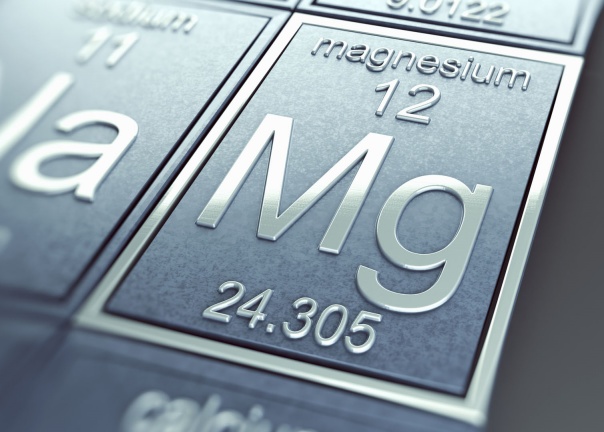It’s a multi-tasking master!

Do a little research on magnesium and it’s hard not to be impressed. It’s involved in more than 600 enzymatic reactions in the body. Few dietary elements have more influence over how our bodies operate. To name a few of its responsibilities, magnesium:
- Plays a key role in energy production by activating ATP, the energy molecule that fuels our cells.
- Regulates transport of other minerals, helping our muscles and nerves function properly. That includes the heart muscle.
- Regulates blood pressure, cholesterol production, and blood glucose levels.
- Aids bone development and guards against bone loss.
- Helps maintain fluid levels in the body.
- Helps control stress response.
- Helps with healthy sleep by maintaining levels of GABA, a neurotransmitter that improves sleep and mood.
Sad to say, the World Health Organization reports that as much as 75% of the U.S. population does not meet the FDA’s recommended daily intake of 420 mg. Why? Part of the reason is poor nutrition intake and part can be attributed to lifestyle.
Factors that inhibit our magnesium levels:
- Stress – under conditions of mental or physical stress, magnesium is released from blood cells and goes into blood plasma. From there, it’s excreted into urine.
- Caffeine – can affect the intestinal lining, making it less able to absorb magnesium.
- Alcohol – doubles the excretion rate of magnesium in both acute (one time) and chronic alcohol consumption.
- Diabetes mellitus – both type 1 and type 2 diabetics have an increased rate of magnesium excretion due to general kidney dysfunction.
- Gastrointestinal problems – Crohn’s disease, irritable bowel disease, etc., increase magnesium secretion.
- Proton Pump Inhibitors – can inhibit magnesium absorption.
- Diuretic medications – increase magnesium excretion.
How do you know if you’re deficient?
Unfortunately, blood tests are a poor marker of the body’s magnesium levels. Only 1% of our magnesium is in the blood stream; most of it is in tissue. However, there are some general markers of low magnesium:
- Constipation
- Hyperexcitability
- Muscle cramps or spasms
- Fatigue
- Loss of appetite
- Confusion
- Irritability
- Poor memory
- Insomnia
Severe magnesium deficiency might present as:
- Heart rhythm changes
- Tingling or numbness
- Nausea
- Personality changes
How should we increase our magnesium?
Choose foods high in magnesium, such as dark green leafy veggies, dark chocolate, pumpkin seeds, almonds, black beans or avocado. You also can supplement with magnesium citrate (if you’re more prone to constipation), magnesium glycinate (if you’re more prone to loose stool), or magnesium threonate (which crosses the blood-brain barrier and may be more helpful for migraines or mood impairments). And the good news most of the sources are inexpensive!
REFERENCES:




